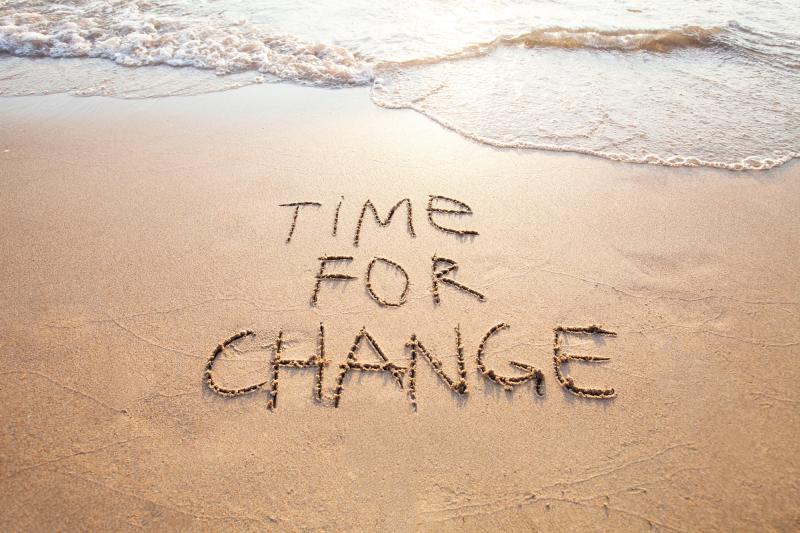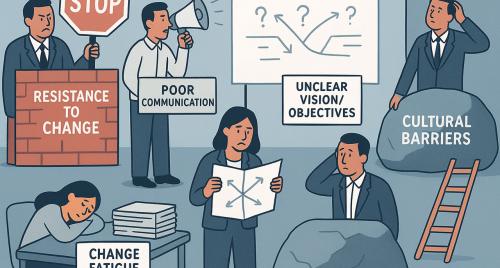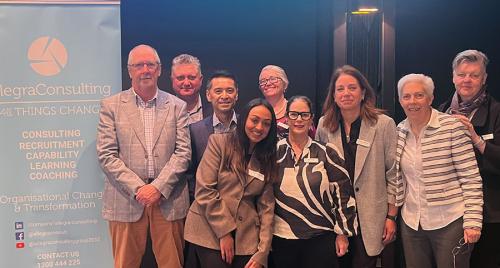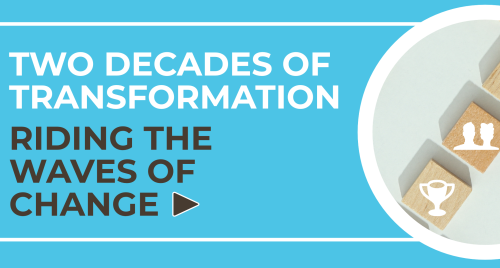
We often talk about people resisting change and how we can manage this resistance. Call me a glass half full girl but perhaps looking at it as a change reaction might be a better mindset for us to have.
Oxford Languages (via Google) talks to resistance as “the refusal to accept or comply with something.” I am not sure about you, but my experience with change management programs is not that the average person is refusing to accept the change – more just trying to understand what it is, how it will happen and importantly, what it means to them.
I like to think of this as a reaction to change “something done, felt, or thought in response to a situation or event.” (Oxford Languages via Google)
Having a mindset that I can expect wide and varied change reactions that can be both positive and also challenging puts me in a better headspace to plan how we manage and plan our change.
So firstly, how important is managing reaction to change?
Understanding and helping people manage their reactions to change is a significant part of good change management and good change leadership. Taking the time to understand that most “reactions” to change are “normal” in the context of that person’s life and work experience is critical. There is some excellent research around reactions to change, but I would say the critical thing to remember is that we all see the world through our eyes and shoes. I might cry about a forthcoming change, and you might say ‘wahoo’ and both those reactions are valid.
Do we think everyone follows the same pattern in reacting to change? Is there a framework we can use and know it will be 100% correct every time?
I am a fan of frameworks; and the models depicting stages of change, whether it is Kubler-Ross, Fisher, Bridges, or any of the models, are helpful starting places. What I know from leading large change and being a part of change both in work and in my personal life is you also need to be careful to “set your watch to them”. Many frameworks depict change as a linear response, and I do not believe that is always the case. People jump backwards and forwards, and sometimes people might be experiencing several reactions and, therefore, emotional responses to change at the same time. I could be scared and excited – I could be saying to myself “this is not happening” and still be in shock and then at the same time be starting to think about the what-ifs. I could be feeling I am in acceptance and then be shocked again – I have seen this over and over leading teams through change, and I have also experienced it myself. So that would be my caveat – learn the frameworks, understand the stages, but expect that individual and group reactions might not be so linear.
What are some of the reasons people might resist change?
Adverse reactions to a change can be many things such as lack of information, lack of engagement, maybe the communication is focused too much on the technical evolution and not enough on the behavioural or psychological side. Perhaps there is a lot of change in the organisation, or there is a base level of fatigue in people, groups, or the organisation. Maybe people do not feel hopeful about the change because leaders have not created a sense of optimism. Often these reactions can be due to employees not feeling they have any control or choices in the change or the process of change.
So how can we manage these reactions?
There are some universal things you can do with managing resistance, allowing still for individual differences.
- Firstly, really practice active listening and understanding others views and positions. It is all about empathy and having a human-centred mindset.
- Involve people – maybe they cannot influence the “what” we are doing, but you can let them be involved in “how” we do it so they can own it.
- Create feedback loops – two-way exchange of information on the change.
- Create a sense of optimism, and as a change leader in the change, show advocacy yourself. Statements like “I believe in this change” or “we can make this change work together” or “ I need your support for this change to be a success”.
- Make sure you are sharing information, often repeated, in multiple forms (be creative). Usually, for those of us heavily involved in the change, we think, “oh, I have told them that already”, because we know the change so intimately. In reality, we need to share that information multiple times with impacted groups.
- Finally, share the benefits. Talk through the WIIFM (what is in it for me), for the team and for the organisation. Show them facts and figures of where it has worked, even in other organisations.
And my last tip, do not make stuff up's, do not lie (!!!), do not oversell the change – people are good at knowing if someone is authentic, so be realistic about what is good and what might be hard about the change and get them involved, let them have some input and control in the “how”.
Feel free to reach out to me if you want to discuss this further at caroline.mills@allegraconsulting.com.au.







